NSF Condor Fellowship Announcement

Condor Staff
March 5, 2023The Condor Array Telescope program is soliciting applications from faculty at historically black colleges and universities (HBCUs) for up to two NSF Condor Fellowships in 2023 to carry out projects using the telescope. Each fellowship offers access to Condor and provides a stipend of $6000. The focus of the project may involve any combination of research, education, and public outreach. (Up to two fellowships will be awarded in 2023, and up to two additional fellowships will be awarded in 2024.)
Condor is an “array telescope" that consists of six apochromatic refracting telescopes of objective diameter 180 mm, each equipped with a large-format, very low read noise, very rapid read time CMOS camera. Condor is optimized for measuring both point sources and extended, very low-surface-brightness features and in its normal mode of broad-band operation obtains observations of exposure time 60 s over dwell times spanning dozens or hundreds of hours. Condor is equipped with Sloan u’, g’, r’, and i’ filters, luminance filters, a set of He II 486.6 nm, [O III] 500.7 nm, He I 587.5 nm, H-alpha 656.3 nm, [N II] 658.4 nm, and [S II] 671.6 nm narrow-band filters, and low-spectral-resolution diffraction gratings. Condor is located at a very dark site in the southwest corner of New Mexico. In its normal mode of operation, Condor operates completely autonomously, controlled by its control and acquisition computers.
To apply for the fellowship, please submit (1) a project description (of up to two pages), (2) a curriculum vitae (of up to two pages), (3) a list of publications, and (4) the names of three references by email to info@condorarraytelescope.org. Applications should be received by April 30, 2023 to receive full consideration, and awards are expected to be made by June 1, 2023.
